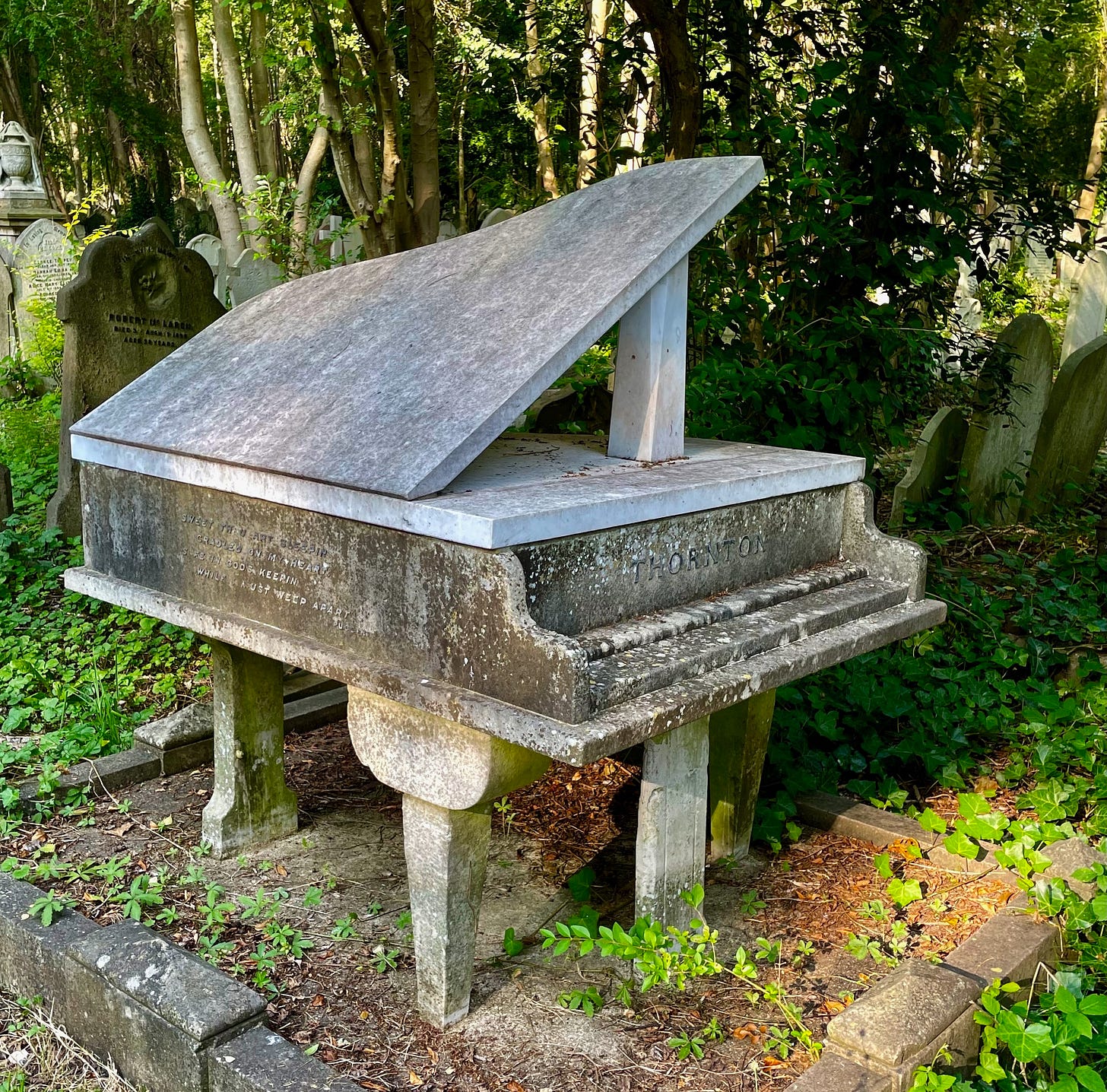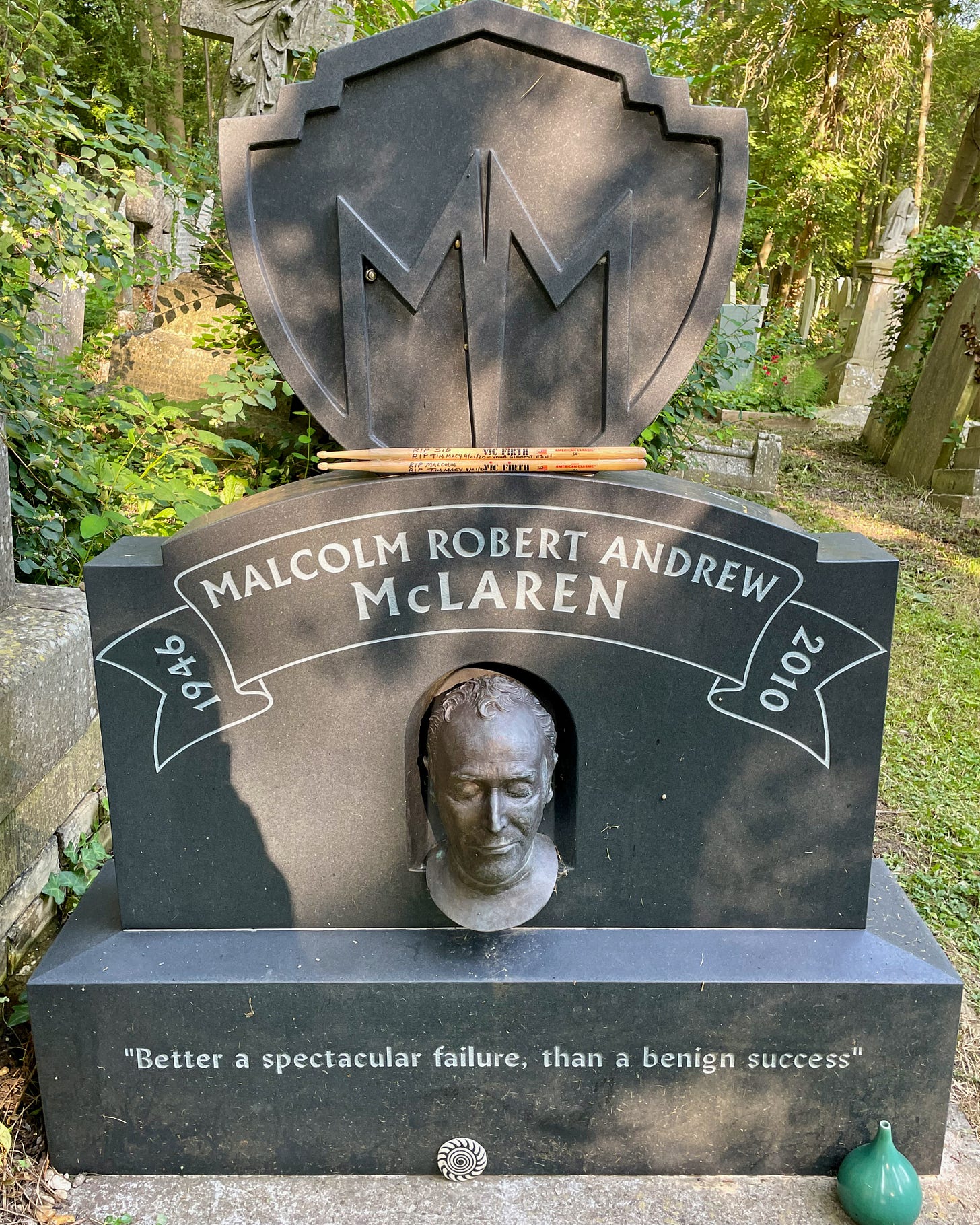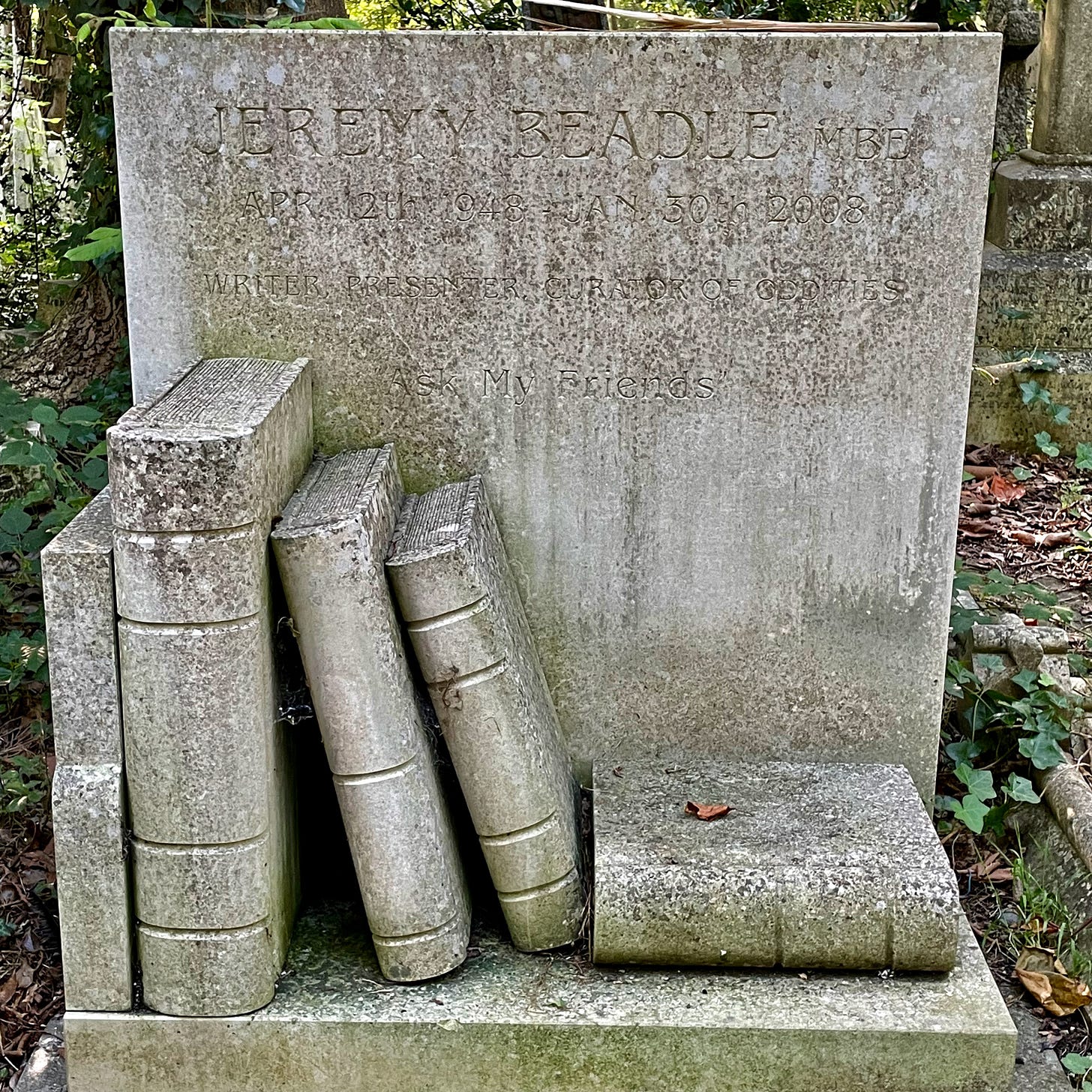Letter from the SoHo Shakespeare pub
Plus, Street Saviour: Ann couldn’t help herself in London. Could I? Part II

Acting! It is a thing the Brits do best. Every personal display is an act, thus meaning that most British people don’t necessary have to go to acting school to become pros. Past generations train future ones to consistently put on a public show of good faith, interest, comedy, feigned tragedy or other. If a youngster attains a position at one of the many of the consrvatories across the country, especially the prestigious Royal Academy of Dramatic Arts (RADA), parents and friends acclaim them — this person is supremely English — and thus, could possibly never utter a sincere word again.
One never knows in dealing with even the average Brit if it is a role or the real person. There is a reason for this: shame and honor. The British live in consistent fear of looking ridiculous, becoming the butt of a joke, or most importantly, being talked about behind one’s back. There exist the What’s App channels to organize events and then there are the back channels used solely to heap scorn on certain members of the first What’s App group. The English “take the piss” out of themselves before anyone else can do it. And lastly, the stoicism that is so endemic across the country — the one that has caused a massive mental health crisis and loads of addiction issues — is praised relentlessly. So much so, that Brits feel as if they can only be themselves if under the influence of some substance or having a full-on breakdown. The reason Brits and Americans (and the French) have such discord has everything to do with this stoicism, which makes all of us with real emotions feel like outsiders or imposters or the enemy — most of the time. Instead of crying on subways, as in New York, we cry in bathrooms and corners. Or try to stiffen that quivering upper lip.
Shakespeare was a master of the duplicity of the British, picking up on it as early as the 16th century. Lampooning it in his comedies, As You Like It or The Merchant of Venice — and even in his tragedies. Another human being would never see an Englishman questioning whether “to be or not to be” or his wife screaming at a spot, ala Macbeth. It was a master stroke then to put the bard in window overlooking his pub in the heart of SoHo, watching (and perhaps laughing) at all the English interactions.
The Shakespeare’s Head on Carnaby Street is probably the most original of all the Shakespeare pubs in England, even though its origins are a bit dodgy. Originally licensed in 1753 to John and Thomas Shakespeare, allegedly distant relatives of the famous playwright, William Shakespeare had no direct descendants and died 119 years before the pub was built. The name, however, did help the pub attract more customers, as did the Shakespeare bust peeping out of the pub’s upstairs window. Added around 1900, the bust was possibly more than just a head, as it has a missing hand, apparently due to World War II bomb damage. In fact, nothing of the original establishment remains — the building which stands today is late nineteenth-century, Tudor style.
As most old pubs, the Shakespeare’s Head has probably witnessed untold stories. Great Marlborough Street, on which the Shakespeare’s head is located, boasted two main landmarks: a legendary magistrates court where high-profile cases were heard, and a private anatomy school. Anatomist Joshua Brookes ran a private anatomy school from his Great Marlborough Street home in the late 1700s, where would-be doctors could experiment on bodies — for free, A beer after a hard day was provided by The Shakespeare’s Head. When the anatomy fad faded, the Marlborough Street Magistrates Court charge sheet read like a celebrity Who’s Who: John Lennon for exhibiting sexually explicit pictures; Bob Monkhouse for defrauding film distribution companies; Christine Keeler for Profumo; Keith Richards for possession of heroin, mandrax, marijuana, a revolver and an antique shotgun, as well as Mick Jagger, Lionel Bart, Johnny Rotten and Francis Bacon, also for drugs.
Street Saviour: Ann couldn’t help herself in London. Could I? Part II (Part I is here.)

Wednesday
After another kind Uber driver dropped us at my flat and Ann dragged herself up the stairs, we settled in to the previous night’s routine, with her taking up the couch and me uprooting my 14-year-old cat, Dorothy, so I could sit on Dotrothy’s favourite chair. Ann was not eating much, as she had not done an English “poo” in about a week, so I left her to her shows and the green juice I bought her earlier in the day. Again, she was playing games on her phone, but also texting here and there with her mother in Bermuda and her church down in Bromley. Evidently, her mother, a retired Jamaican nurse, had gone from advising her to eat mashed baby prunes to relieve her bowels to trying out some steamed vegetables. And in other news, the pastor of Ann’s church in Bromley wanted to take her in for housing, but he had to consult the church council.
Here we go, I thought, as I took my headphones out of my ears, yet another council to make some decision on Ann’s future. But I wasn’t exactly sitting on Dot’s chair seething. I hadn’t actually minded someone just sort of being around, even though Anne would interrupt my writing flow o fret about “pushing too hard for a poo” and hemorrhoids and whether she was going to have them for the rest of her life.
“No, Ann, you’ll be fine,” I told her. “Want me to run across the street to the off-license (the “offie” or corner store where all manner of people could buy alcohol and other needed items past regular hours, but mostly alcohol) and buy you a laxative? It will help.” She fretted about some allergy or something to laxatives — she was already wearing Depends undergarments at the age of 50 — and turned it down. I tried to let it go, remembering there but for the grace of god and my family go I.

When not summoned by Ann, I rediscovered some old music on my headphones and answered emails and What’s Apps regarding a refugee project I had going on in Iraq. I also made some attempts at writing, but that was possibly a bit ambitious on my end, as noise from the tele and Ann’s utterances just broke my concerntration. Finally, I decided bed was a good idea and we said our goodnights again, as the cats and I headed back to my room. “Adrian, I just want you to know that you have the kindest heart in the world,” Ann told me. “You are so open and I am so grateful to you.”
There it was: the flattery. I had heard it before and I had uttered it myself to my older brother and younger sister to try and thank them for the help they had given me over the years. Ann’s sounded as hollow as probably my own entreaties — people wanted action, not words. They wanted to see my life dramatically improve; like, improve overnight. I wanted see instant success with Ann, too, as if my couch and the Ginger Beers I bought her and the fish and chips and green juices and some clean tote bags and that spare travel thing of Chanel Chance perfume I found Ann would cause her to throw off her crutches, walk upstraight, declare herself fit for purpose and be on her way.
But all at once, I saw my past and potential future flash in my brain, remembering when my brother came to pick me up from hospital following a week-long bender in October 2008. I had decided I would rather be a gutter drunk than go to another AA meeting. At those, popularity was based on the number of days one had sober, and to me, the cliquiness of the sober lesbians felt like the female bullies of my old prep school. As I was in rent arrears a month for my beloved Brooklyn flat — my first solo home — Jim had moved all my stuff into his basement and held his resulted anger deep down in the bottom of his gut. I made sure to walk thre paces behind him on his march to Union Square for the subway home. We said little to each other until we reached his shared house in Park Slope — in urban myth the one where Toni Morrison had written Beloved (she didn’t, but lived there afterward). He showed me my room and set out my the routine: 90 meetings in 90 days, keep everything spit-shine clean and otherwise try to sort out a new place and a new life in a month. Yet, for a few fleeting hours, I sank into the bed downstairs from my big brother feeling like I was home for the first time in possibly 22 years — back to 1986, before my parents commenced their ugly divorce.

“Ann, it’s all fine. And no, I am not any kind of angel or whatever. I am, actually, a bitch.” Earlier that day, I had received an email notice that my tennis club had issued me a three-week suspension for “being rude” to a longtime member on the day of my aunt’s death. In an open letter to a proudly Japanese women’s captain, who aimed to use me yet again as a mouthpiece for club politicking, I had told her in no uncertain terms that I wanted no part of the team, let alone try outs. Apparently, telling her that the 14-year-olds at my native Oklahoma prep school did a better job of choosing winning teams than a London club in the country where lawn tennis was invented was a gigantic American insult. It had also been a big no-no to identify someone by their ethnicity, yet another rule of engagement in the international culture wars. The club secretaries wanted an apology, too. “I accept the consequences,” I wrote back. “I am sorry.” By the end of the day, brain tank was dry,
“Well, whatever made you cry earlier today,” Ann said, oblivious to anything I was experiencing, even the dressing-down I had been taking to serve as her advocate, “it will turn out alright. I believe god has something great planned for you, just as I believe I am the richest woman in the world. I am rich in people, in love and in possibility,” she went on. “I am going to get through this now and will come out on top. Maybe I will start my own rescue center. God has lots of riches planned for me — and lots for you, too.” She told me this with a new found confidence I couldn’t bring myself to believe. Probably just the same as my own brother and sister years before.
“Okay, Ann. From your lips to the universe’s ears, right?” I replied a quater heartedly. I was beginning to feel a bit played like a Catholic-guilt church organ, But how could anyone fake the scoliosis and the limps and the seizures and the allergies and everything else, I wondered. And why would anyone bring themselves that low for a spot on a sofa in North London.
“Tomorrow, we must absolutely get you to hospital to get your constipation, your inhalers and your other issues fixed,” I told Ann, thinking that maybe a hospital social worker would finally found this woman a bed. “So up early for that pedicure we missed today and a hair washing.” Ann hadn’t scrubbed clean her dirty head in possibly weeks, as she had complained of hand pain and needed someone to do it for her. I left it all at that, and pet Bromley, by then sitting on my stomach, waiting for attention.

Cats — beings that I had been keeping in my home for nearly 20 years (the first abandoned and bullied stray forced upon me during my first and only stint in rehab in Norwich, Connecticut, whom I took home and aptly named Norwich)— can be totally annoying, too. They meow and wake you when they are hungry. They will bat and hiss if not pleased with your actions. They are picky about toys and catnip and all manner of beds.
Cats also, much like the homeless, get a bad rap. Depending on the moggy and its upbringing, they will either scratch the shit out of you or jump on the couch and nuzzle — or both. They can also sit on your lap and purr to their heart’s content. They are soft and furry and do adorable, outrageous things. Still, there is one major difference from sharing a home with a homeless human and with your two cats: other than various pitches of meows, cats can’t talk. You can also move them or knock them off their perch if necessary; squirt them with water to discipline them; give them a toy to play with; and feed them. Nine times out of 10 they go away happy.
These same things do not apply to homeless people.
After being awakened at god-knows-when by Ann the first night of our stay due to her asthma or allergies or something coming through the cracked window, I knew the second night to close windows and curtains and the doors separating my bedroom area from my living area. And when I awoke at nine o’clock the next morning for coffee with a friend at the British Library , she was dead asleep. Let sleeping homeless people lie, I thought. I came back at noon, and Ann was up and ready to go.
After a productive catch-up with my good friend — also new to London — I felt strong enough to solve both my problems and Ann’s, as well. First up, the pedicure abandoned the day before due to hours at the homeless centre. Second in line: a hair wash. After that, the Whittington hospital A+E an NHS hospital located bwteen the tough Holloway neighbourhood and the posh Highbury enclave. I had hoped we could at leadt get Ann a diuretic, maybe a bed in hospital, a medical social work case manager and some other resources. Ann had already been sending me links to places she wanted to go. Either I was getting royally scammed by Lady Ann, or she knew she needed vast amounts of care, or she just wanted to be waited on hand-and-foot for the rest of her life. I could not discern, and usually I was pretty good a picking up on a scam.
Along the way, political questions started to form in my mind, considering the situation in both the UK and America. After ten years of an austerity government in the UK during which social services were radically slashed for all the marginalised — and all these church leaders including the late pope were trying to encourage compassion — are the lot of us just supposed to throw a bunch of loose change to the people on our streets and kick them off the curb? Are the idiot, naive ones of the population supposed to take them into our homes one-by-one as the tech billionaires and politicians and lobbyists just get richer off the dysfunctional government?
Or if we’re all supposed to be practicing radical self-responsibility as Trust Fund Baby Trump continues to slash and burn any kind of domestic and international aide in favour of war in the Middle East to create even more marginalised, then who the hell is supposed to look out for the people who couldn’t look after themselves? Bono? The birther, Elon Musk? The dwindling charities? Was I supposed to invoice the government for monies spent on the homeless? Which department? Did that department still exist thanks to the absolute insanity of a certain car-and-rocket business buyer (not founder) who drove his employees like indentured servants, while he seeded the world with his offspring and encouraged more people to do so? Maybe I wanted to feel useful after weeks of not writing or pitching or getting anything done on a book due to grief and an existential crisis about the point of my life following my aunt’s funeral. But I also wanted to not feel guilt as I walked down the street and to stop spending my taxed money and my spare time looking after a stranger.
I was having the ultimate karma kick in the ass.




